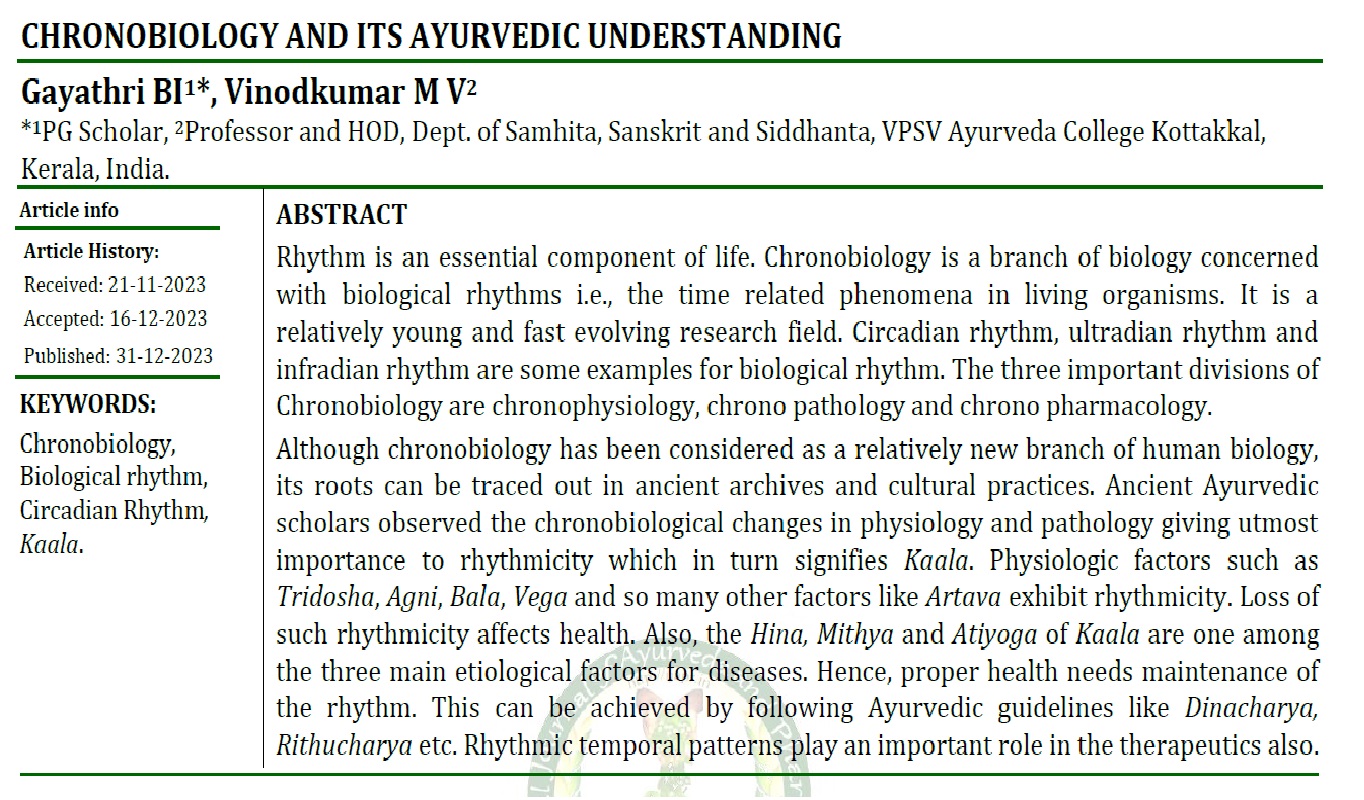Chronobiology and its Ayurvedic Understanding
DOI:
https://doi.org/10.47070/ijapr.v11i12.3042Keywords:
Chronobiology, Biological rhythm, Circadian Rhythm, KaalaAbstract
Rhythm is an essential component of life. Chronobiology is a branch of biology concerned with biological rhythms i.e., the time related phenomena in living organisms. It is a relatively young and fast evolving research field. Circadian rhythm, ultradian rhythm and infradian rhythm are some examples for biological rhythm. The three important divisions of Chronobiology are chronophysiology, chrono pathology and chrono pharmacology.
Although chronobiology has been considered as a relatively new branch of human biology, its roots can be traced out in ancient archives and cultural practices. Ancient Ayurvedic scholars observed the chronobiological changes in physiology and pathology giving utmost importance to rhythmicity which in turn signifies Kaala. Physiologic factors such as Tridosha, Agni, Bala, Vega and so many other factors like Artava exhibit rhythmicity. Loss of such rhythmicity affects health. Also, the Hina, Mithya and Atiyoga of Kaala are one among the three main etiological factors for diseases. Hence, proper health needs maintenance of the rhythm. This can be achieved by following Ayurvedic guidelines like Dinacharya, Rithucharya etc. Rhythmic temporal patterns play an important role in the therapeutics also.
Downloads




